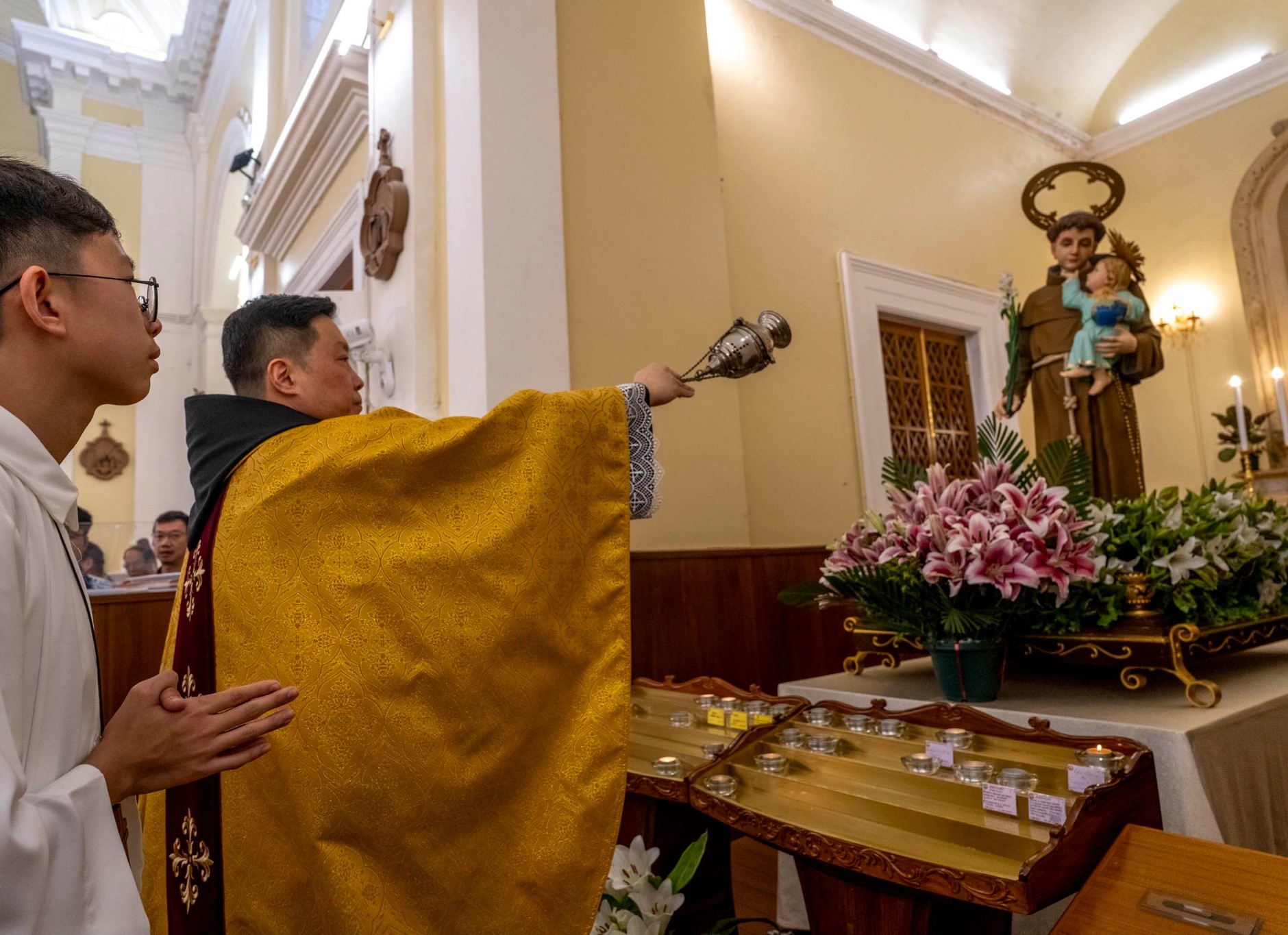Fr Leonard E Dollentas
The Church celebrates the Feast of St. Anthony of Lisboa (also known in the Christian world as Saint Anthony of Padua) on the 13th of June. In Macau, the celebration is held every year at St. Anthony’s Church, a Catholic church located on Rua de Santo Antonio close to the ruins of St Paul. This church is a UNESCO World Heritage attraction and one of the three ancient churches in Macau.
Every year, many parishioners and devotees look forward to joining the solemn procession honoring this Patron of the Poor and Wonder Worker in Macau. In a recent announcement however, the parish has decided to postpone its annual religious procession, originally scheduled for Saturday after the feast day mass, due to the forecast of severe weather. The decision comes in light of warnings from meteorological authorities about an impending storm expected to bring heavy rain and strong winds to the region. In lieu of the procession, the parish celebrated a special Mass on the scheduled date, inviting all community devotees to participate.
St. Anthny, a renowned saint and dedicated servant of God had been born into a wealthy noble family in Portugal. He was eventually joining the Order of the Canons Regular of the Order of the Holy Cross and was ordained a priest at a rather young age, which then led him on a journey of encounter with several Franciscan friars that inspired him to join their order. St. Anthony adopted his well-known name from the name of the patron saint of the friary, St. Anthony the Great. He went to various places like Morocco and then Italy in pursuit of his vocation and mission, and in Italy, in one well known occasion, when the Dominicans and the Franciscans in the town of Forli could not agree on who to preach in an ordination ceremony, it fell onto St. Anthony, whose homily moved the heart of the entire audience with his wisdom and eloquence. He worked together with the founder of the Franciscan order, St. Francis of Assisi himself, convincing the latter of the importance of theological and spiritual preparation, studies and all related matters for the Franciscan friars, and he was tasked to take care of this matter henceforth for the friars. An astonishing story in Bologna would later inspire the popular tradition and devotion that St. Anthony of Lisboa is often invoked for his intercession in finding lost items. It was told that a Franciscan novice stole the psalter that belonged to St. Anthony, and the latter prayed that the book be returned to him, and indeed it happened, as not only that the thief returned the book, but he also returned to the order as well.
St. Anthony quickly became a champion of the poor. Among other acts, he influenced the local government in Padua to pass legislation that protected the poor from going to prison if they could not repay their debts. St. Anthony hoped to preach to Muslims and be martyred. On his way to Morocco, he became seriously ill and was forced to return home, but his ship back to Portugal was blown off course and finally landed in Sicily. Because of his deteriorating health, he was not allowed to pursue missionary work. Instead, he taught theology in Bologna, Italy; and at Montpellier, Toulouse, and Puy-en-Velay in southern France. He won great admiration as a preacher and was noted for his simple yet profound teaching of the Catholic faith. He died on his way to Padua, Italy on June 13 in 1231.
From the Americas to Asia to Africa, St. Anthony is revered all over the world. Outside of Europe, there are churches dedicated to him in Texas, Tamil Nadu and Goa in India, and the Philippines, among other places. He also inspired many artists who painted him frequently.


 Follow
Follow


